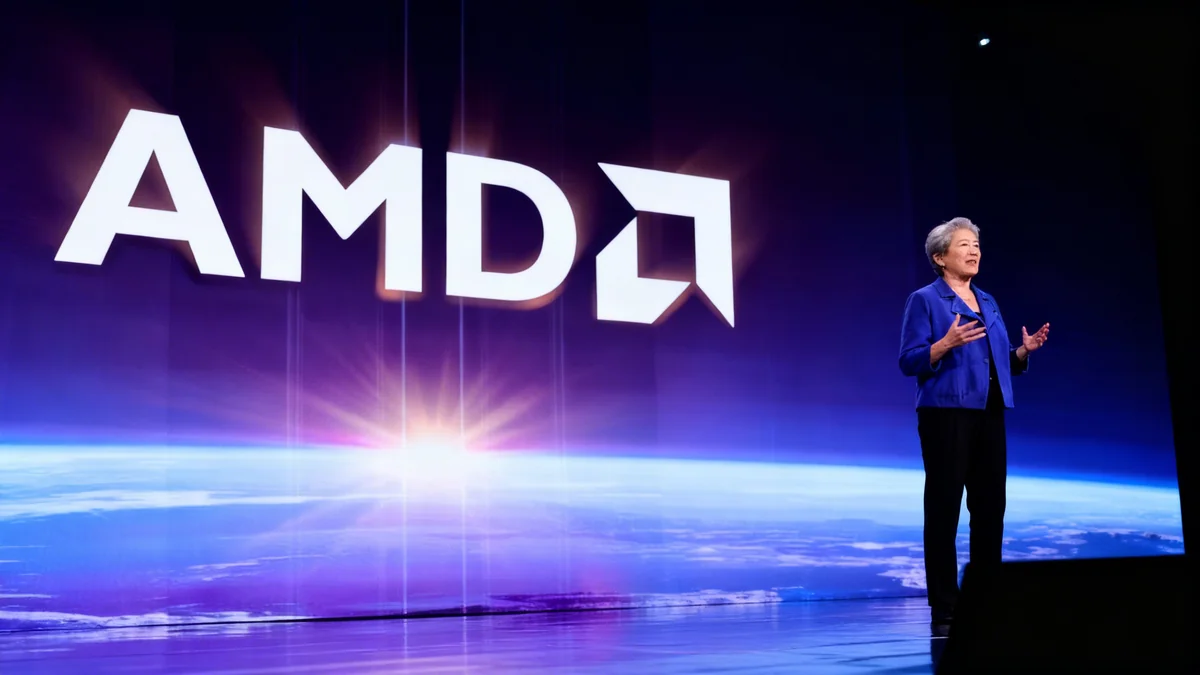Chinese technology conglomerate Alibaba has started to see tangible financial returns from its substantial investments in artificial intelligence within its e-commerce operations. The company reports that new AI tools have already improved advertising efficiency, a development that comes just as it prepares for its largest annual shopping event, Singles Day.
Key Takeaways
- Alibaba's AI integration has resulted in a 12% increase in returns on advertising spending in early tests.
- The company is investing 380 billion yuan ($53 billion) over three years into AI and cloud infrastructure.
- Executives anticipate a significant positive impact on sales during the upcoming Singles Day shopping festival due to AI enhancements.
- The reported gains address market concerns about the high cost of AI development versus its actual profitability.
AI Integration Boosts Advertising Performance
Alibaba is actively deploying a suite of artificial intelligence tools across its e-commerce platforms, and the initial results are promising. Kaifu Zhang, the company's vice president for e-commerce AI applications, confirmed the positive outcomes in a recent briefing.
According to Zhang, preliminary testing of AI-driven systems has shown a consistent 12% increase in returns on advertising spend. This metric is a crucial indicator of efficiency, showing how much revenue is generated for every dollar spent on ads. The enhancement suggests that AI is helping the company target consumers more effectively.
"It’s very rare to see double-digit changes in such tests," Zhang stated, emphasizing the significance of the early results. The comments were made in Mandarin and translated for reporters.
These improvements come from a range of AI applications. The company has focused on personalizing search results for individual shoppers and improving the accuracy of features like virtual clothing try-ons, creating a more engaging and effective customer experience.
Strategic Investment Amid Market Skepticism
Alibaba's progress in monetizing AI comes at a time of widespread debate in the technology industry. Many companies are investing heavily in artificial intelligence, but there are growing concerns about whether these significant expenditures can translate into near-term profits.
A Multi-Billion Dollar Commitment
In February, Alibaba pledged to invest 380 billion yuan (approximately $53 billion) over the next three years. This massive capital allocation is designated for advancing its AI and cloud computing infrastructure, signaling the technology's central role in its future strategy.
On an earnings call in late August, company leadership framed AI and consumption as "two major historic opportunities." This perspective justifies what they termed investments of "historic scale."
CFO Toby Xu clarified the company's financial priorities during the call. "Our first priority at this point is making these investments," he said. "So for now, we may place relatively less emphasis on profit margins. But that does not mean that we don’t care about margins." This strategy indicates a long-term vision, with a focus on building a technological advantage first.
Impact on Singles Day Shopping Festival
The timing of these AI advancements is critical, as Alibaba has just launched its presales for Singles Day. This event, centered on November 11, is China's largest annual shopping festival and a key driver of the company's revenue. It is often compared to Black Friday and Cyber Monday in the United States combined.
Zhang expressed confidence that the integration of AI would have a noticeable effect on this year's event. He predicted a "very significant" positive impact on the company's gross merchandise volume (GMV), which is the total value of goods sold through its platforms.
Understanding Singles Day Growth
Despite reports of slowing consumer spending in China, the Singles Day event has continued to grow. Last year, research firm Syntun estimated that total sales across major platforms, including Alibaba's Tmall, JD.com, and PDD, reached 1.11 trillion yuan. This figure represented a 20.1% year-on-year increase.
If Alibaba's new AI tools can further optimize product recommendations, advertising, and user engagement, the company could see another year of strong performance during this crucial sales period.
E-commerce Remains Alibaba's Core Business
While Alibaba has diversified into cloud computing, logistics, and entertainment, its domestic e-commerce unit remains its financial foundation. It is the largest single source of revenue for the technology giant.
In the quarter that ended on June 30, Alibaba's China e-commerce division reported revenue equivalent to $19.53 billion. This marked a 10% increase compared to the same period in the previous year, demonstrating the segment's continued strength.
By successfully implementing AI to enhance this core business, Alibaba is not only improving its immediate financial performance but also future-proofing its most important revenue stream. The early success of its AI strategy could set a precedent for other e-commerce companies navigating the high costs and potential rewards of artificial intelligence.





